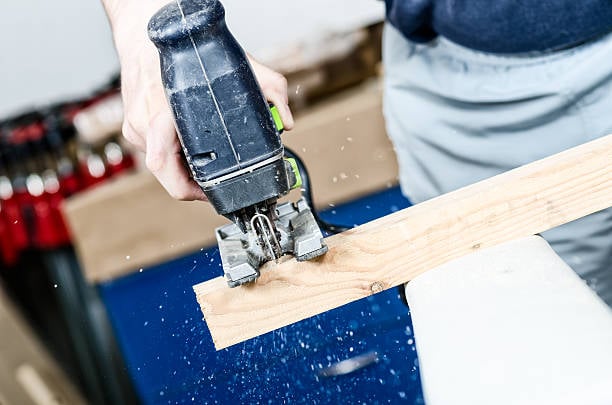Understanding the Importance of Jigsaw Blades in Woodworking Projects
When it comes to woodworking, having the right tools is essential to achieving precise and clean cuts. One such tool that plays a crucial role in this process is the jigsaw. However, the effectiveness of a jigsaw greatly depends on the type of blade used. In this article, we will explore what a jigsaw blade is, its various types, and how to choose the right one for your woodworking projects.
The Basics of Jigsaw Blades
A jigsaw blade is a cutting tool specifically designed for use with a jigsaw. It is a thin, narrow blade with teeth that perform the cutting action. These blades are typically made from high-speed steel (HSS), bi-metal, or carbide-tipped materials. The choice of blade material depends on the type of material you will be cutting.
Types of Jigsaw Blades
There are several types of jigsaw blades available, each designed for different cutting applications. Understanding the different types will help you select the most appropriate blade for your specific needs.
1. High-Speed Steel (HSS) Blades
HSS blades are the most common type of jigsaw blades. They are suitable for cutting wood, plastic, and non-ferrous metals. These blades are relatively affordable and offer decent durability. However, they may struggle with heat buildup when cutting tougher materials.
2. Bi-Metal Blades
Bi-metal blades are a step up from HSS blades in terms of durability and cutting performance. They feature a high-speed steel cutting edge welded onto a flexible and durable spring steel body. Bi-metal blades are ideal for cutting through harder materials such as hardwood, laminates, and metal.
3. Carbide-Tipped Blades
Carbide-tipped blades are the most durable and long-lasting option available. They feature small pieces of tungsten carbide embedded into the blade's teeth, making them highly resistant to wear. These blades are perfect for cutting through abrasive materials, such as ceramic tiles and fiberglass.
4. Specialty Blades
Specialty blades are designed for specific cutting applications. They include blades for cutting curves, scroll blades for intricate designs, and reverse-tooth blades for clean cuts on the top surface of materials. These blades allow for greater versatility and precision in your woodworking projects.
Choosing the Right Jigsaw Blade
Now that you are familiar with the different types of jigsaw blades, it's important to understand how to choose the right one for your woodworking projects. Here are a few factors to consider:
1. Material to be Cut
The first and most important consideration is the material you will be cutting. Different materials require different blade types. For wood, a general-purpose HSS or bi-metal blade will suffice. However, for more specialized materials like metal or ceramic, opting for a carbide-tipped blade is recommended.
2. Teeth Per Inch (TPI)
TPI refers to the number of teeth on a blade per inch. Blades with higher TPI provide smoother cuts on thin materials, while blades with lower TPI are more suitable for thicker materials and faster cutting speeds. Consider the thickness of the material you will be cutting and choose a blade with the appropriate TPI.
3. Shank Type
Jigsaw blades come in two main shank types: T-shank and U-shank. T-shank blades have a universal design and are compatible with most modern jigsaw models. U-shank blades, on the other hand, are older and less common. Ensure that you choose a blade with the correct shank type for your jigsaw.
4. Blade Length
The blade length determines the cutting capacity of your jigsaw. Longer blades allow for deeper cuts, while shorter blades are better suited for intricate and detailed work. Consider the thickness of the material and the depth of cut required when selecting the appropriate blade length.
In Conclusion
A jigsaw blade is an integral part of any woodworking project. By understanding the different types of jigsaw blades and how to choose the right one, you can ensure clean and precise cuts in various materials. Whether you are a professional woodworker or a DIY enthusiast, investing in high-quality jigsaw blades will undoubtedly enhance the quality of your projects.


